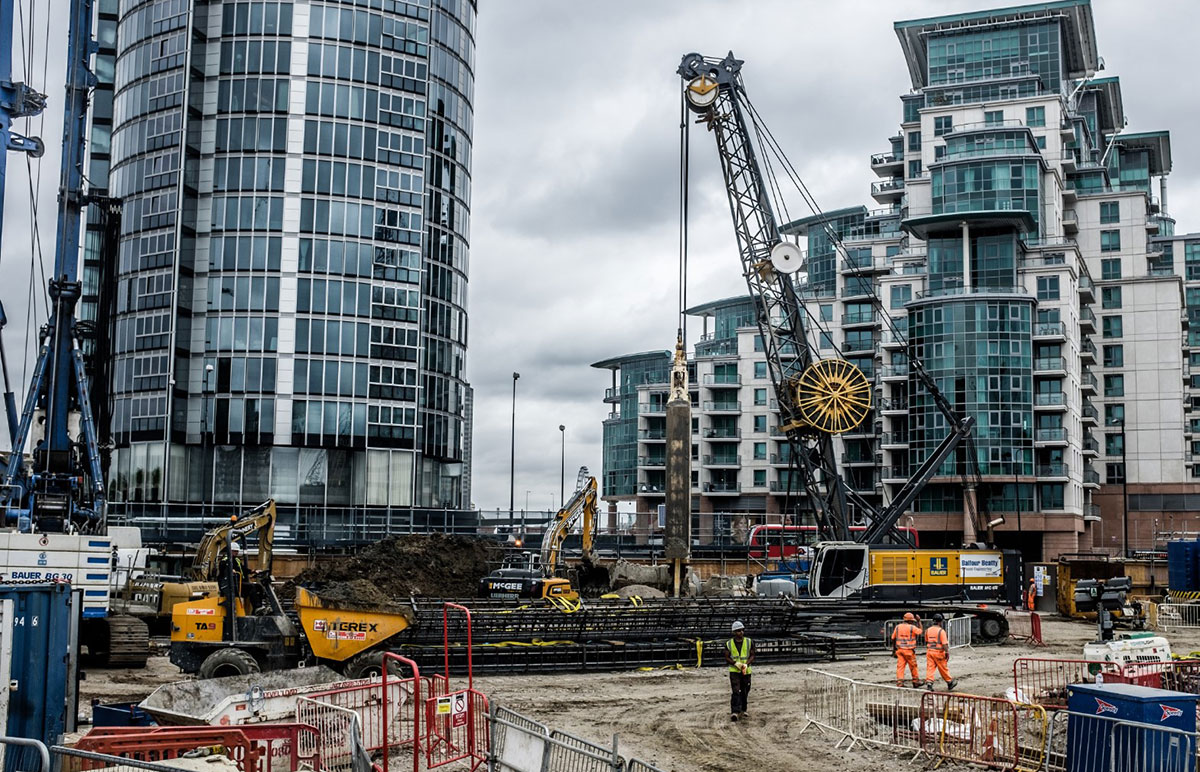9 Easy Facts About Geotheta Explained

A geotechnical designer is a specialized civil designer who concentrates on the habits of dirt, rock, and other materials found under the Planet's surface area. They apply clinical concepts and engineering techniques to analyze the homes and behavior of these materials to sustain the risk-free and efficient style, building and construction, and maintenance of framework jobs.
They carry out site investigations, accumulate examples, do lab examinations, and evaluate data to evaluate the viability of the ground for construction tasks - Engineer of Record. Based on their searchings for, geotechnical engineers supply suggestions for foundation layout, incline stability, retaining frameworks, and reduction of geotechnical threats. They collaborate with various other experts, such as designers, structural engineers, and construction teams, to make certain that geotechnical factors to consider are incorporated right into the overall job style and application
By examining the behavior and residential or commercial properties of dirt and rock, they can determine potential geotechnical dangers such as landslides, soil settlement, or incline instability. Their know-how assists avoid failings or crashes that could threaten lives and property. Here are some detailed tasks and duties of a geotechnical engineer: Site Examination: Geotechnical engineers conduct website investigations to gather data on subsurface conditions.
They interpret the data to recognize the buildings and habits of the dirt and rock, including their stamina, permeability, compaction qualities, and groundwater conditions. Geotechnical Analysis and Layout: Geotechnical designers analyze the data accumulated during site examinations to examine the stability and viability of the site for building tasks. They execute geotechnical calculations and modeling to evaluate elements such as bearing capacity, negotiation, slope security, lateral planet stress, and groundwater flow.
7 Simple Techniques For Geotheta
Foundation Layout: Geotechnical designers play an essential function in designing foundations that can safely support the designated structure. They evaluate the soil problems and tons needs to identify the suitable structure type, such as shallow foundations (e.g., grounds), deep structures (e.g (https://www.openlearning.com/u/ianhammond-shld0k/)., stacks), or specialized techniques like soil renovation. They take into consideration aspects such as settlement limitations, bearing capability, and soil-structure communication to establish optimal structure designs
They evaluate building strategies, display site tasks, and carry out field inspections to confirm that the layout referrals are complied with. If unpredicted geotechnical concerns develop, they evaluate the situation and supply suggestions for removal or changes to the style. Danger Assessment and Reduction: Geotechnical designers assess geotechnical hazards and threats related to the project website, such as landslides, liquefaction, or dirt disintegration.

Collaboration and Interaction: Geotechnical designers function closely with other experts included in a task, such as architects, architectural engineers, and construction teams. Reliable communication and partnership are essential to incorporate geotechnical factors to consider into the overall task design and building and construction process. Geotechnical designers supply technological competence, answer queries, and make sure that geotechnical demands are met.
Some Known Questions About Geotheta.
Right here are some kinds of geotechnical designers: Structure Engineer: Foundation designers concentrate on developing and assessing structures for structures. They analyze the dirt problems, load needs, and site qualities to establish the most proper foundation kind and style, such as superficial foundations, deep structures, or specialized methods like stack foundations.
They evaluate the factors affecting incline security, such as dirt properties, groundwater problems, and incline geometry, and develop strategies to stop incline failures and mitigate risks. Quake Designer: Earthquake engineers specialize in analyzing and creating frameworks to stand up to seismic forces. They analyze the seismic danger of a site, assess dirt liquefaction capacity, and establish seismic design standards to make sure the safety and security and durability of frameworks during earthquakes.
They execute field screening, collect examples, and examine the collected information to characterize the dirt properties, geologic formations, and groundwater problems at a website. Geotechnical Instrumentation Designer: Geotechnical instrumentation designers concentrate on monitoring and determining the actions of dirt, rock, and structures. They install and preserve instrumentation systems that keep an eye on aspects such as soil settlement, groundwater levels, incline motions, and architectural variations to evaluate efficiency and provide very early cautions of potential problems.
Not known Facts About Geotheta
They often tend to be investigatory people, which means they're intellectual, introspective, and inquisitive. They are interested, systematic, logical, analytical, and logical. Some of them are additionally social, meaning they're kind, generous, participating, patient, caring, valuable, compassionate, tactful, and friendly - Consulting Engineers.
In the office setting, geotechnical engineers make use of specialized software program devices to do estimations, develop styles, and evaluate data. They prepare records, testimonial project requirements, communicate with customers and employee, and coordinate job tasks. The office setup gives a helpful environment for study, analysis, and partnership with various other experts entailed in the job.
Some Ideas on Geotheta You Should Know
They often see task websites to carry out website investigations, evaluate geotechnical problems, and collect data for evaluation. These check outs entail taking a trip to various places, in some cases in remote or difficult surfaces. Geotechnical designers may carry out soil sampling, conduct tests, and monitor construction tasks to make certain that the geotechnical aspects of the job are being executed appropriately.
Geotechnical engineers also work in specialized geotechnical research laboratories. Geotechnical research laboratory designers function thoroughly in these atmospheres, handling screening equipment, operating tools, and videotaping information.
Comments on “Get This Report about Geotheta”